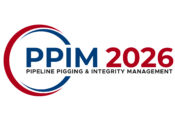
COURSE SCHEDULE (both days)
7.30: Registration, breakfast, coffee
8.00 – 5.00: Course
It will be necessary to bring a laptop to this course.
Risk management has been embraced by both the pipeline industry and regulatory agencies as a way to not only increase public safety but also to optimize all aspects of pipeline design, operations, and maintenance. This workshop is designed to equip attendees with the information and the know-how to set up and implement a comprehensive risk management program for pipelines. It will go into considerable depth in explaining the latest methods for risk profiling. The focus will be on the establishment of a program that not only fulfills regulatory requirements, but also gives the pipeline owner/operator a long-term decision support tool.
COURSE OBJECTIVES
This course begins with a review of risk management concepts and risk assessment methodologies and then focuses on the most practical risk assessment technique available to the pipeline industry. The emphasis throughout is on practical, ready-to-apply techniques that yield immediate and cost-effective benefits.
Participants will leave with the necessary tools to begin or strengthen risk assessment practice leading to a formalized risk management program. As much as is possible, course content will be directed to specific audience needs.
CONTINUING EDUCATION UNITS
Upon completion of the course, participants will be awarded 1.4 CEUs.
WHO SHOULD ATTEND
Anyone requiring a working knowledge of pipeline risk concepts and how they can be efficiently employed to enhance pipeline operations, maintenance, design, and regulatory compliance. Attendees should be prepared to engage in hands-on team and individual exercises designed to solidify theoretical concepts into practical application.
TEXTBOOK*
The reference book, Pipeline Risk Assessment: The Definitive Approach and Its Role in Risk Management, is included with the course materials. This breakthrough book presents the definitive approach to assessing risks from pipelines – an approach that overcomes the limitations of previous methodologies. The methodology detailed here is a practical, easy-to-apply approach to measuring risks associated with operating any type of pipeline in any environment.
*Hardcopy or e-book option available
WORKING RISK MODEL FILE
Attendees also receiver a robust, working, spreadsheet-based, risk assessment template, ready for immediate use in performing risk assessments on actual assets. The spreadsheet format allows easy customization and can fully support risk assessments on even larger pipeline systems. Its utility is only limited by the limitations on the spreadsheet software environment. With this unprecedented accompaniment to a risk workshop, attendees can jump-start their initial risk assessment efforts or see exactly how to update their existing risk assessment methodologies.
INSTRUCTOR
W. Kent Muhlbauer is a principal of WKM Consultancy, LLC, a firm specializing in pipeline design, construction, operations and management. With over 35 years’ experience in the pipeline industry, especially focused on pipeline risk management and integrity management, Mr. Muhlbauer, is an advisor to government regulatory agencies and academia as well as pipeline operators and remains an oft-invited speaker at industry conferences worldwide. Since its inception in 1994, WKMC, LLC has been the primary consultant in numerous pipeline technical and managerial projects for over 100 clients, including most major U.S. and international pipeline operating companies.
SYLLABUS
Foundation
- Basic Concepts of Risk
- Definitions and terminology
- Risk Assessment Processes
- Use and Misuse of Statistical Analyses
Information Utilization
- Sources of Information
- Measurements and Estimates
- Gathering and Effectively Utilizing Information
- Data Collection and Analysis
- Formatting for Databases QA/QC of Data
- Segmentation
Risk Assessment
- Failure Modes
- Measuring Failure Potential
- Time Dependency Issues
- Threat Interaction
- Consequence Analysis
- Hazard Zone Calculations
- Conservatism
Risk Management
- Risk Profiles
- Data-based Decision Making
- Managing the Risks
- ‘Acceptable’ Risk Concepts
- Project Prioritization Based on Risk Assessments
- Resource Allocation Concepts
- Integrity Management and Risk Management
- Regulatory Compliance
Practical Applications
- Dispelling Myths
- Optimizing Complexity—Intelligent Simplifications
- Case Studies
- Tips and Learning Experiences in Practicing Risk Assessment
- Using Common Spreadsheet and Desktop Database Tools



